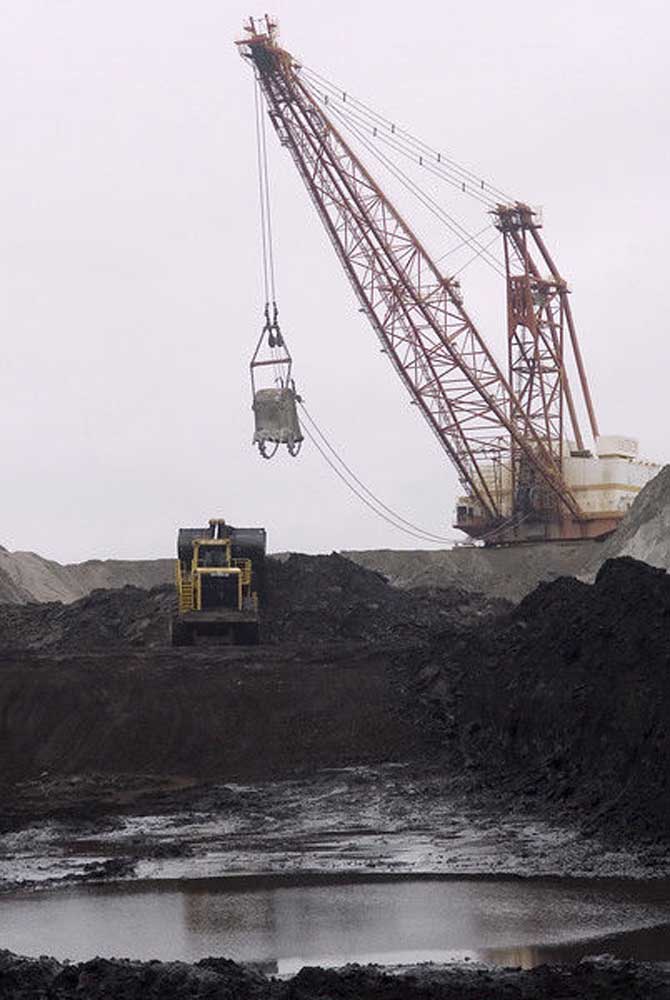The ‘War on Coal’ will be expensive
Published 8:59 pm Tuesday, March 29, 2016

- Massive machinery goes through the coal mining process at the Luminant owned Oak Hill coal mine in Rusk county.The extraction of the coal is a fairly rapid operation and once completed the company goes through the more involved procedure of "reclaiming" the land and replanting it with trees and native vegeation that in turn attract fauna to repopulate the area.Photo: Jaime R. Carrero/Tyler Morning Telegraph
President Obama openly declared war on coal in his last State of the Union address. And it’s going to be a very, very expensive war.
“Now we’ve got to accelerate the transition away from old, dirtier energy sources,” Obama said. “Rather than subsidize the past, we should invest in the future – especially in communities that rely on fossil fuels. We do them no favor when we don’t show them where the trends are going. That’s why I’m going to push to change the way we manage our oil and coal resources, so that they better reflect the costs they impose on taxpayers and our planet.”
Trending
By “manage” coal resources, of course, he meant shut down as many coal-fired power facilities and coal mining operations as possible.
As Michael Grunwald reported for Politico magazine: “The war on coal is not just political rhetoric, or a paranoid fantasy concocted by rapacious polluters. It’s real and it’s relentless. Over the past five years, it has killed a coal-fired power plant every 10 days. It has quietly transformed the U.S. electric grid and the global climate debate.”
For families, that means higher electricity bills, higher prices at stores and fewer jobs.
“Coal plant closures harm more than just those working in the coal industry,” wrote Nicholas Loras, of the Heritage Foundation. “Just as lower energy prices save families and businesses money, artificially driving prices higher through unnecessary regulations hits consumers again and again.”
Just one front in the war on coal – the EPA’s mercury rule – has direct and indirect costs pegged at $25.6 billion per year.
The benefits of the rule are calculated to be about $6 million. Mercury emissions are already miniscule, and they’re diminishing.
Trending
And now the EPA’s Clean Power Plan is set to make things much, much worse.
“The EPA’s Clean Power Plan will destroy jobs, hurt families, and hike electric bills 20 to 30 percent or more across America,” explained the Texas Public Policy Foundation. “The Clean Power Plan hits struggling communities the hardest in an attempt to cut America’s carbon dioxide emissions – a non-toxic gas that we all breath out and that plants require to live – with the total theoretical decrease in global temperature of only 0.018 degrees Fahrenheit. While the projected temperature decrease is imperceptible, the effect on jobs and electric bills is very real. In a very real sense, the Clean Power Plan is all pain and no gain.”
It makes no sense, the TPPF added.
“By shutting down reliable, low-cost power plants – many of which have recently completed clean air upgrades that cost billions of dollars – the power grid will become unstable, increasing the likelihood of rolling blackouts on high-use days,” the group said.
A far better plan, which would achieve the same end, would be to allow markets to work. Right now, natural gas is dirt cheap. Some power plants are already converting to gas. New gas plants are under construction.
Natural gas is cleaner than coal, so this is progress – but it’s incremental. There needn’t be a war on coal.






